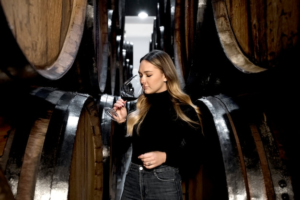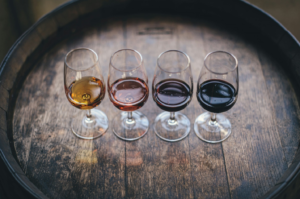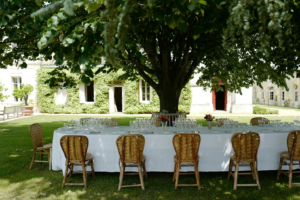The Basics of Wine Chemistry
Wine is more than just a delightful beverage; it’s a complex blend of chemistry and biology. The transformation from grape juice to wine involves several scientific processes that impact the final product’s flavor, aroma, and texture. Although private wine tour guides often possess a keen knowledge of the process, understanding these processes provides a deeper appreciation for the art of winemaking and the subtleties of different wines.
Fermentation: The Heart of Winemaking
At the core of wine production is fermentation, a biological process in which yeast converts sugars in grape juice into alcohol and carbon dioxide. This process is crucial for creating alcohol and developing the wine’s flavor profile. During fermentation, yeasts produce compounds such as esters, phenols, and aldehydes, which contribute to the wine’s aroma and taste.
- Esters:These compounds give the wine its fruity and floral notes. For example, ethyl acetate can impart a pear-like aroma, while isoamyl acetate provides banana-like scents.
- Phenols:These include tannins and flavonoids, which influence the color, texture, and taste of the wine. Tannins, for instance, can create a drying sensation in the mouth and add complexity to the wine’s flavor.
- Aldehydes:These contribute to the wine’s bouquet and can cause nutty or oxidative flavors, especially in aged wines.
The Role of Terroir
Terroir, a French term that encapsulates a wine-producing region’s geography, climate, and soil, plays a significant role in shaping a wine’s flavor profile. In Napa Valley, for example, the diverse terroir affects how grapes develop their flavors and aromas. With a customized wine tour itinerary, you can learn more about the science of diverse terroirs for wine-making at specific vineyards.
- Soil Composition:Different soil types, such as volcanic or alluvial, impact the nutrients available to the vines and consequently the taste of the wine. Soils rich in minerals can enhance a wine’s complexity.
- Climate:The temperature and weather patterns influence grape ripening and the balance of sugar and acidity. Warm climates tend to produce fuller-bodied wines with higher alcohol content, while cooler climates can yield wines with vibrant acidity and delicate flavors.
- Topography:The elevation and slope of vineyards affect sunlight exposure and drainage, influencing the grape’s development and flavor.
Aging and Maturation: Developing Complexity

Once fermentation occurs, the wine undergoes aging, which can occur in various vessels such as oak barrels or stainless steel tanks. Aging is a crucial process in understanding the science of wine-making; it allows the wine to develop more complex flavors and aromas through oxidation and chemical reactions.
- Oak Aging: Wines aged in oak barrels often acquire additional flavors such as vanilla, spice, and toast. Oak imparts tannins and allows for slow oxidation, softening the wine’s texture and enhancing its complexity.
- Bottle Aging:As wine ages in the bottle, it undergoes slow oxidation and chemical reactions that can develop more nuanced flavors and aromas. This process can add layers of complexity and mellow, harsh tannins.
How Wine Chemistry Affects Flavor Profiles
Understanding the chemistry of wine helps in appreciating how different factors contribute to its flavor profile. Here’s a brief look at how various components influence taste:
- Acidity:A key factor in a wine’s freshness and crispness, acidity balances sweetness and enhances fruit flavors. Higher acidity wines are often described as vibrant and zesty.
- Sweetness:The residual sugar left after fermentation impacts the wine’s sweetness. Sweet wines are typically richer and more abundant, while dry wines have less sugar.
- -Tannins:Present mainly in red wines, tannins contribute to the wine’s structure and mouthfeel. They can also add bitterness, complexity, and aging potential.
Discover the Science of Wine with a Personalized Tour
Exploring the science of wine firsthand can deepen your understanding and enjoyment of this fascinating beverage. If you’re eager to experience the chemistry and artistry of winemaking in Napa Valley, consider booking a tour with Napa Wine Tour Guide. We offer personalized wine tour packages with knowledgeable wine tour guides tailored to your interests. Our custom wine tour itineraries in Napa ensure you visit the wineries and vineyards that best showcase the science and craft behind Napa’s renowned wines. You’ll enjoy a seamless and insightful journey through the valley with comfortable tour vehicles and private wine chauffeurs. Let us help you uncover the secrets of wine and enhance your appreciation for every glass. Book your tour today and embark on an educational and indulgent adventure in Napa Valley!



